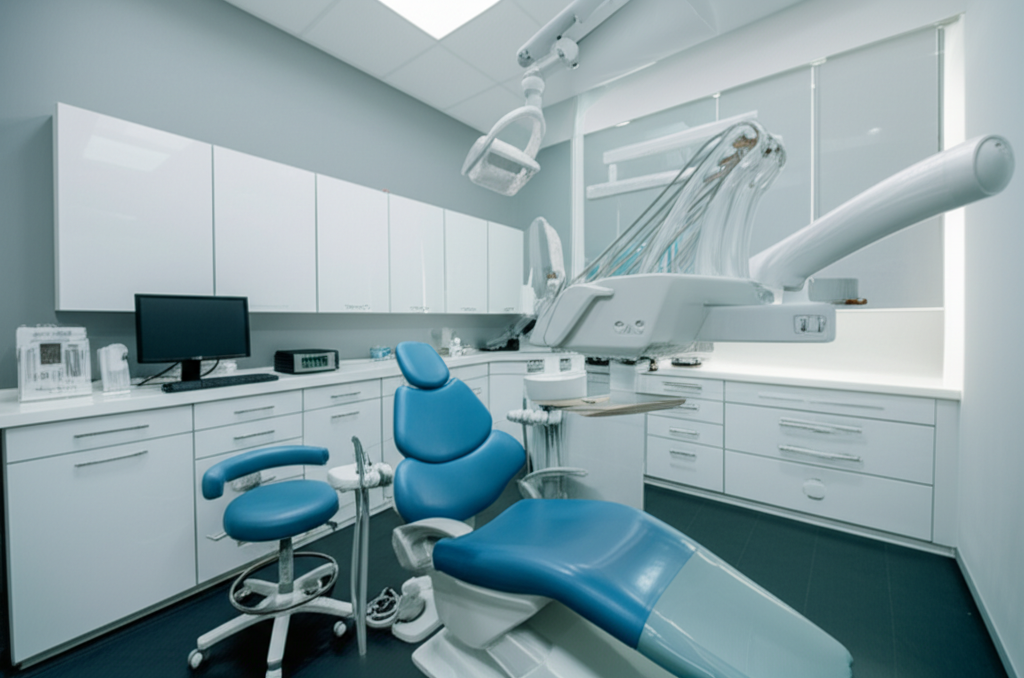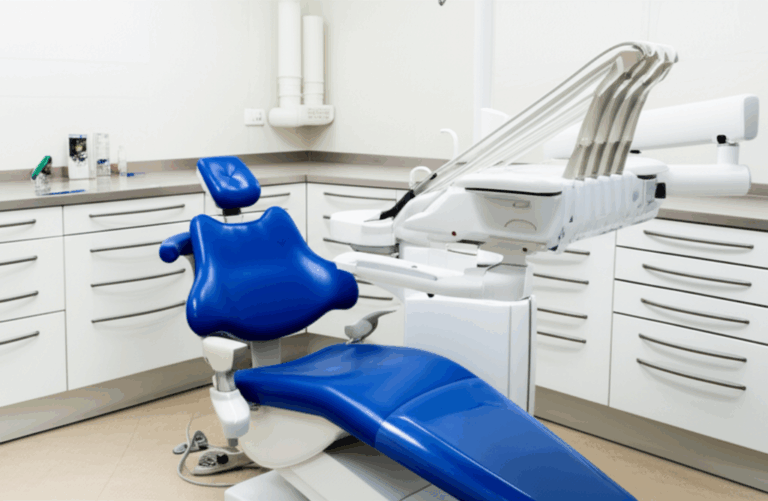
Your Essential Guide: How to Work as a Foreign Dentist in Spain
Can I really work as a dentist in Spain if I trained abroad?
Short answer: Yes. Thousands of dentists from other countries have found good jobs in Spain. You can do it too. The process is not quick, and there is paperwork. You must get your dental degree recognized, join the local dentist association, get a visa if you’re from outside the EU, and speak good Spanish. Here’s each step in plain, simple words—no extra details, just what you need.
You’ll also see what dental jobs are like, how much you might earn, where to look for work, and how to get used to living in Spain. Think of this as your friendly guide through the Spanish rules like “homologación,” “NIE,” “Colegio,” and more.
In This Article
- Your Path to Practicing Dentistry in Spain: Is This For You?
- Step 1: Validate Your Dental Degree (Homologación or Convalidación)
- Step 2: Register With the Spanish Dental Council (Colegio de Odontólogos)
- Step 3: Visas and Immigration for Non‑EU Dentists
- Step 4: Master Spanish for the Clinic and Daily Life
- Step 5: The Spanish Dental Job Market and How to Find Work
- Step 6: Living and Working in Spain: Practical Essentials
- Salaries, Taxes, and Cost of Living: What to Expect
- Common Challenges and Smart Tips for Success
- Special Cases: EU vs Non‑EU, UK Dentists After Brexit, Specialists
- FAQs: Quick Answers to Your Top Questions
- Your Next Steps: A Clear Checklist
Your Path to Practicing Dentistry in Spain: Is This For You?
If you dream of helping patients in sunny Spain, you’re not alone. Spain’s way of life attracts lots of dentists. But you should know the steps first:
- If your dental degree is from outside Spain, you must get it recognized. This is called homologación. Sometimes, they might say you need convalidación, which is when you finish some extra training in Spain.
- You must join your local Colegio Oficial de Odontólogos y Estomatólogos before seeing patients. There’s one in every area.
- If you’re not from the EU, you’ll also need a work and residence permit. EU, EEA, and Swiss dentists skip the visa but still sign up as a foreigner (get an NIE).
- You need Spanish. Really. Most clinics want at least a B2 level. C1 is even better.
- Most dentist jobs are in private clinics. Big cities like Madrid and Barcelona have lots of dentists, so it’s more competitive there. Smaller cities or the countryside might be easier to find a job.
If you think you can do all this, you’re ready to start. Let’s look at each step.
Step 1: Validate Your Dental Degree (Homologación or Convalidación)
Homologación: Spain fully says your dental degree is equal to theirs.
Convalidación: You did most of the right courses, but Spain wants you to do a few more classes, pass certain exams, or take extra classes at a Spanish university.
The Ministerio de Universidades (Ministry of Universities) does the paperwork. They compare your studies to Spain’s. If you’re from the EU, they also look at EU rules. Sometimes, the health ministry checks your documents too.
What You Need to Apply
Get all this ready before you start:
- Original dental diploma and your transcripts (grades)
- Full details about each course—how many hours, what you learned, practical training
- Copy of your passport and something to prove your identity
- Apostille or another official stamp to prove your documents are real
- Sworn translations into Spanish
- Your CV and any work experience (helps but is not a must)
- Proof you’re a dentist in good standing if you can get it
Tip: Ask your university for the full plan of your program, especially hours you spent treating patients in different specialties.
How to Apply and How Long It Takes
- Apply online or at an office in Spain. You can do this from your own country too.
- It takes a while! Most people wait 1–3 years, sometimes more.
- Fees: The official fee is a few hundred euros, but translation, apostilles, and sending papers by mail mean many pay over €1,000.
If Spain gives you convalidación (not full recognition), you’ll get a paper that shows which courses are missing. Then you need to take these at a Spanish university.
Can They Ask for a Test or Extra Classes?
Yes. If your degree is missing important areas, you may need to:
- Take a few classes
- Do some practice under supervision
- Take a test in some specialties
Don’t worry: Many foreign dentists do these extra steps and then start work in Spain.
Step 2: Register With the Spanish Dental Council (Colegio de Odontólogos)
Once your degree is accepted, you must join the local dentist association (Colegio) where you want to work. This is required. You can’t work as a dentist without it.
What the Colegio Usually Needs
- Your homologación paper (or proof of recognition if you fit EU rules)
- Passport and NIE number
- Criminal record certificate from your country
- Health certificate
- Proof you have malpractice insurance
- Application forms, photo, and a fee
The Colegio gives you your registration number and explains the local rules. They’ll also tell you about training and ethical codes.
Don’t Forget Malpractice Insurance
This insurance protects you and your patients if something goes wrong. If you do implants or surgery, you may need more coverage. The Colegio or insurance agents can give you prices.
Step 3: Visas and Immigration for Non‑EU Dentists
If you’re not from the EU, you must get a visa and permit to work and live in Spain. You apply through the Spanish Consulate in your country. There are a few ways to do this:
Main Visa Routes for Dentists
- General Work Visa: Your employer offers you a job, and you get a permit for that job.
- Highly Qualified Professional Visa: For top jobs that pay more. Sometimes used by big clinics or groups.
- EU Blue Card: For experts with higher salaries.
- Entrepreneur Visa: If you want to open your own dental clinic.
Visa Application Basics
Usually, you’ll need:
- A valid passport
- Visa form and fee
- A job offer or contract (sometimes with a minimum salary)
- Background check and health certificate
- Proof you have the right qualifications (homologación, or at least proof you started the process)
- Health insurance to enter Spain if needed
NIE and TIE Explained
- NIE: Your foreigner ID number for taxes and paperwork.
- TIE: Your physical card you get in Spain as a foreign resident.
Tip: Start early and check the Spanish Consulate’s website. Rules change. It’s wise to get help from an immigration adviser if you need it.
Step 4: Master Spanish for the Clinic and Daily Life
You need good Spanish. Not just for work—for everything. Most clinics want at least B2 (upper intermediate). C1 (advanced) is even better.
What Level Do You Need?
- B2: The basic level most clinics accept
- C1: Needed if you’ll lead teams, explain complicated cases, or work solo
Some clinics want official B2 or C1 certificates (like DELE or SIELE). In big cities, some patients speak English, but almost everyone prefers Spanish.
How to Get There Fast
- Mix online classes with real conversations. Join Spanish meetups or volunteer locally.
- Try to shadow dentists in Spain, even if just to listen.
- Make lists of key phrases—how to ask about pain, explain treatments, or get consent.
Bonus: In places like Barcelona or Valencia, locals sometimes speak Catalan or Valencian. Spanish is always enough, but learning a few words in local languages helps.
Step 5: The Spanish Dental Job Market and How to Find Work
Spain has lots of private dentists. There are not many jobs for dentists in public hospitals. Where you work, what you do, and how much you earn will depend on location and experience.
Where Jobs Are
- Big cities: Madrid and Barcelona have many clinics, but lots of competition.
- Medium cities: Valencia, Seville, Malaga, Zaragoza—more chance to find a stable job with lower living costs.
- Rural areas: Need more general dentists. Easier to grow a patient list.
- Islands: Can have special demand due to tourists or local needs.
Specialties in Demand
- Orthodontics, implants, cosmetic dentistry, gum treatments, root canals, and pediatric dentistry always have patients
- Digital dentistry is getting bigger—new tech, scanners, clear aligners, and 3D printers
How to Search
- Job boards: InfoJobs, LinkedIn, Colegio job sites, or “Clínicas Dentales” job ads
- EURES (for EU jobs) and SEPE (Spain’s public job services)
- Healthcare recruiters
- Email clinics directly, especially big groups like Vitaldent, but also small practices
- Networking: Go to Colegio meetings or dental events—meeting people really helps
Interview Tips for Spain
- Show your Spanish! They might give you a case to explain.
- Bring examples of your dental work (photos or simple case descriptions)
- Be honest about where you are in the homologación process; some clinics can wait for you
Contracts and Work Models
- Employee: You get a set salary and benefits.
- Self-employed (autónomo): You send invoices and pay your own taxes and social security. Most dentists in private clinics work like this. You might be paid per patient or per job.
- Locum jobs: Short-term work when someone fills in (maternity or holiday cover), good to try Spain and learn the system.
Working With Labs and Technology
Most Spanish clinics use a mix of classic and digital ways of working. You’ll often talk to labs for making crowns, implants, or cosmetic work. Choose partners who deliver on time and offer good materials.
- For crowns and bridges, try a reliable crown and bridge lab
- For implant work, work with an implant dental laboratory
- For new digital workflows like scanning and 3D prints, try a trusted digital dental lab
- For veneers and smile makeovers, choose an expert veneer lab
Note: Labs can be local or international. Focus on fast delivery, new materials, and natural-looking shades.
Step 6: Living and Working in Spain: Practical Essentials
Once you get a job, you’ll have a few life basics to set up:
Get Your Numbers in Order
- NIE: Your Spanish ID as a foreigner. Get it at a police station or consulate.
- Social Security: Your boss signs you up if you’re an employee. If you’re self-employed, you’ll do this yourself. In places like Valencia, you get an SIP card for public health.
- Bank account: Needed to get paid. Bring your passport, NIE, and proof of where you live.
Taxes and IRPF
- If you live in Spain, you pay taxes on everything you earn worldwide. If you don’t, you only pay taxes on Spanish money.
- IRPF: The main personal income tax. Bosses take it out, or self-employed dentists pay quarterly.
- Dental work is not charged with VAT in Spain, but you may see it on materials or lab bills. A tax helper (gestor) is very useful.
Housing and Cost of Living
- Rent is higher in Madrid and Barcelona (€800–€1,200 for a simple flat). Cheaper in smaller cities.
- Life costs less outside big cities, but think about your commute to work.
Healthcare Access
- Employees pay into social security and get public healthcare for free (also covers family).
- Self-employed people pay social security too, then get an SIP card for health care.
Culture and Patient Communication
- Spanish patients want you to be warm and friendly, but to explain treatment clearly.
- Use plain Spanish, go over the different options, and always get clear consent.
Salaries, Taxes, and Cost of Living: What to Expect
How much do dentists make?
- New dentists: €25,000–€40,000 gross per year
- Mid-career: €40,000–€70,000 gross
- Experienced specialists: €70,000–€100,000 or more
Private jobs often pay a set amount plus extra for some treatments—implants or braces add income. Rural clinics may pay better to get good dentists to come.
Big cities are pricier. Smaller cities and towns are more affordable. Plan for:
- Rent
- Utilities, internet
- Travel/commuting
- Professional costs: Colegio fees, malpractice insurance, courses, translation/legalization fees
- Taxes and social security
Spain’s pension (retirement) system is built on your social security payments. After five years, you can ask for permanent residence. Citizenship takes longer—check official rules.
Common Challenges and Smart Tips for Success
Is it hard to work as a dentist in Spain?
It’s possible, but it isn’t always easy. Most foreign dentists say:
- Bureaucracy: Recognition takes time. Keep paper copies and check for updates.
- Spanish: You’ll need to keep learning, even after passing a B2 test. Watching TV and daily practice helps.
- Competition: In big cities, it’s tough to get started. Looking in smaller towns can be easier.
- Rules: Learn the Spanish dental code of ethics from your Colegio. Marketing and ads are more controlled in Spain.
- Learning: Stay up to date with courses. Extra skills in implants or digital work add value.
- Making friends: Personal contacts open doors. Go to Colegio events or join dental WhatsApp groups.
Special Cases: EU vs Non‑EU, UK Dentists After Brexit, Specialists
EU/EEA/Swiss Citizens
- No visa needed. But you must register locally, get an NIE, join the Colegio, and have insurance.
- If your training fits EU rules, the process is easier but you still register.
UK Dentists After Brexit
- No more automatic recognition. UK degrees usually now go through the full homologación process. Check the newest info with the Ministry of Universities.
Recognition for Specialists
- Spain doesn’t always accept specialist degrees automatically. There might be extra steps for orthodontics, periodontics, etc.
- Ask the Ministry of Universities, the health ministry, and your local Colegio for the latest info.
European Professional Card
- Not for dentists now. Don’t count on it in Spain.
FAQs: Quick Answers to Your Top Questions
Q: How long does degree homologación take in Spain?
A: Mostly 1–3 years, but sometimes longer.
Q: What does homologación cost?
A: Most people pay over €1,000 including all docs and translations.
Q: Do I need Spanish to work as a dentist in Spain?
A: Yes. At least B2, but C1 is better.
Q: Can a UK dentist work in Spain after Brexit?
A: Yes, but you need homologación and a visa if not EU.
Q: Is there a demand for dentists in Spain?
A: Big cities have lots of dentists already. Smaller cities and countryside need more. Specialists like orthodontists or implant experts are always busy.
Q: Public vs private work?
A: Most dental jobs are private. Public dentist jobs are rare.
Q: What salaries do dentists earn in Spain?
A: Usually €25,000–€70,000. The most experienced can earn over €100,000.
Q: Do I need malpractice insurance?
A: Yes—required by law.
Q: Where do I find jobs?
A: InfoJobs, LinkedIn, EURES, Colegio job sites, and writing directly to clinics. Networking helps too.
Q: Can I work while waiting for homologación?
A: You can watch and learn, but not treat patients as a dentist.
Q: What’s the NIE and TIE?
A: NIE is your foreigner number. TIE is your physical resident card.
Q: Any special rules for documents?
A: Get all translations and apostilles as needed. Your consulate will list what you need.
Your Next Steps: A Clear Checklist
Here’s what to do next—one step at a time:
- Pick a start date. Allow time for recognition and visas.
- Diploma, grades, course details, passport copy.
- Apostille and sworn translations.
- Apply to the Ministry of Universities for homologación.
- Take courses, especially for dental words.
- Shadow a dentist if you can.
- Work permit, highly skilled visa, EU blue card, or entrepreneur visa.
- Apply at the consulate with all papers.
- Update your CV and write a short letter in Spanish.
- Pick areas with good demand.
- Use job boards and direct emails.
- Get ready for interviews in Spanish.
- Keep your recognition paper close.
- Get your NIE.
- Have your background and health certificates.
- Buy malpractice insurance.
- Register in your area.
- Open a bank account.
- Register for social security.
- Find a place to live nearby.
- Learn tax basics or get a tax helper.
- Join Colegio events.
- Talk to other dentists.
- Try out new digital or cosmetic workflows.
- Work with good labs for things like crowns, implants, digital work, or veneers.
Takeaway:
- It’s possible; many foreign dentists already did it.
- The process has clear steps: get your degree accepted, register, arrange your visa, improve your Spanish, and job hunt.
- Recognition takes 1–3 years; visas need more weeks or months.
- Good Spanish and friendly communication help you get ahead.
- Pick your city wisely. Go where your skills are needed.
- Build connections, keep learning, and don’t give up.
Helpful sources:
- For recognizing degrees: Ministerio de Universidades
- For registration and ethics: Consejo General de Colegios de Odontólogos y Estomatólogos and your local Colegio
- For visas: Spanish Consulate websites and official immigration offices
- For taxes: Agencia Tributaria
- For jobs: EURES and SEPE
Last word: You already learned a tough job. Spain adds paperwork and a new language. You can do it! Start with your papers, work on your Spanish, plan your visa, and follow the steps. Step by step, you’ll be ready. The day you greet your first patient in Spain with a confident “Buenos días,” you’ll feel proud—because you made it.








